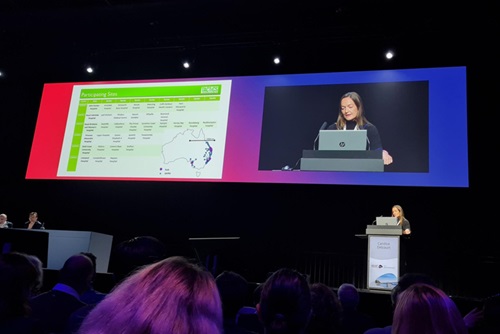
TACTICS, a non-randomised intervention trial that aimed to optimise workflow and implement specialised imaging, has shown promise in improving access to endovascular therapy (EVT) for patients in regional and rural areas of Australia.
“While EVT has revolutionised stroke treatment, access remains a challenge for patients outside major urban centres,” explained Candice Delcourt (Macquarie University, Sydney, Australia), the TACTICS investigator who presented these results today at the European Stroke Organisation Conference (ESOC; 15–17 May, Basel, Switzerland). “The TACTICS trial investigated a multifaceted intervention designed to address this disparity.”
The TACTICS trial involved six regional clusters of hospitals in Australia, each with a central hub capable of providing EVT and associated spoke hospitals. Each cluster underwent a three-month preintervention period followed by a three-month intervention period, and a three-month postintervention period.
During the intervention, hospitals were exposed to a combination of face-to-face, video and virtual reality-based education. Additionally, the hospitals were fitted with and trained to use multimodal, advanced computed tomography (CT) brain imaging to optimise workflow and pathways, improve diagnosis, and aid earlier detection, of EVT candidates within a ‘drip-and-ship’ model.
The study enrolled 1,011 patients across the six clusters and at a total of 34 hospitals. Compared to the preintervention period, the odds of receiving EVT in the pooled intervention and postintervention period increased by 44%. Notably, these improvements were consistent across all individual participating clusters.
“These findings suggest that this intervention has the potential to be a valuable tool for healthcare systems worldwide, particularly those grappling with geographic barriers to stroke care,” said Christopher Levi (University of Newcastle, Newcastle, Australia), lead investigator of TACTICS.
According to the investigators, further research is needed to confirm the long-term sustainability and generalisability of the TACTICS approach.









